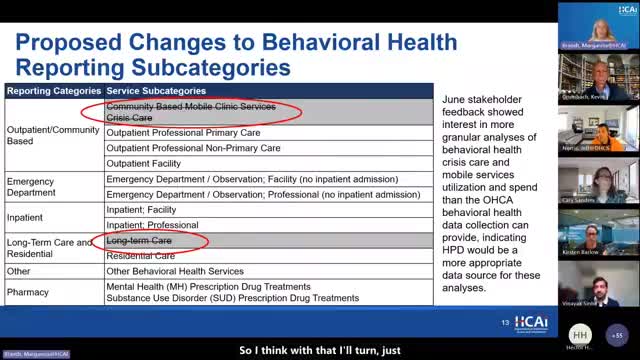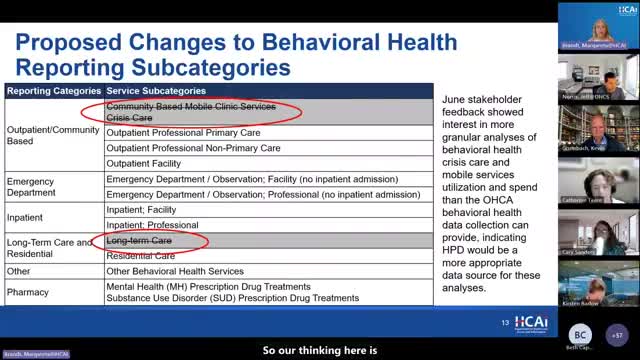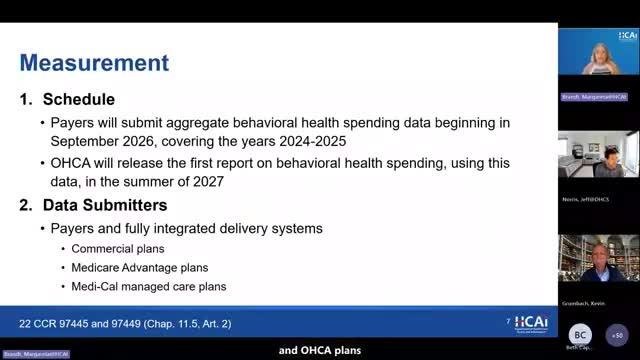Article not found
This article is no longer available. But don't worry—we've gathered other articles that discuss the same topic.

OCAH outlines allocation method for non‑claims behavioral health spending and seeks input on taxonomy expansion for BH‑in‑primary‑care module

Work group debates including TBI, dementia G‑codes and Z‑codes in behavioral health definition

OCAH proposes removing mobile clinic and long‑term care subcategories from payer reporting; HPD to provide granular analysis

